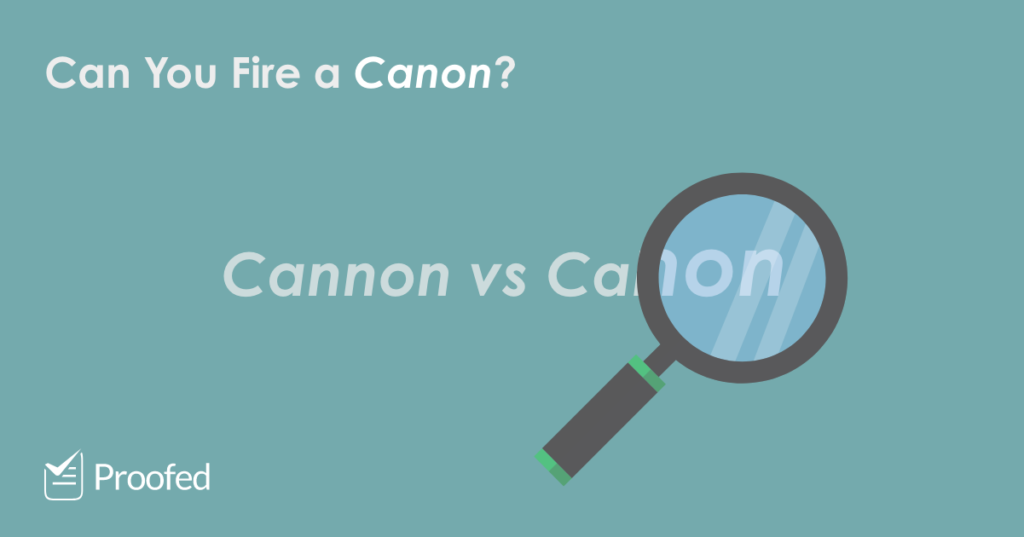The words ‘cannon’ and ‘canon’ are homophones – words that differ in both their spelling and meaning but are pronounced the same.
To avoid mix ups in your written work, then, check out our guide on how to use the words ‘cannon’ and ‘canon’ correctly.
Cannon (A Large Gun)
‘Cannon’ can be used either as a noun or a verb. As a noun, a cannon is a large gun or weapon used in warfare. For example, we might say:
They aimed the cannon and fired.
The plural form of ‘cannon’, meanwhile, can be either ‘cannon’ or ‘cannons’:
The cannon were fired at the enemy.
The cannons were fired at the enemy.
Both example sentences above, for instance, are correct. But whichever form you prefer, make sure to use one plural consistently within each document.
(Image: papannon/Pixabay)
As a verb, meanwhile, ‘cannon’ often refers to bombarding something with cannon fire. Sometimes, though, it also refers to the act of striking or colliding forcefully with something. For example, we might say:
I almost cannoned into a cyclist as I went round the corner.
We see a similar sense of ‘cannon’ in pool, snooker and other cue sports, where a cannon shot involves the cue ball striking more than one coloured ball. This is also known as a carom shot, especially in North America.
Find this useful?
Subscribe to our newsletter and get writing tips from our editors straight to your inbox.
Canon (A Body of Written Work, Rules, Principles or Laws)
‘Canon’ is always a noun. It often refers to a body of principles, rules or laws:
The Protestant canon has 66 books.
Is it appropriate to ask a religion, a canon of ethics, to apologise?
But canon may also refer to a group of exemplary literary works, or the works of a writer that are accepted as authentic (e.g. Shakespeare’s canon).
The plural form of ‘canon’, meanwhile, is always ‘canons’. For example:
The canons of Chaucer and Shakespeare are revered in academic circles.
The verb form of this word is ‘canonise’, which can mean ‘give canonical status’ or ‘declare as a saint’. This second usage comes from Catholicism, so be careful about religious connotations when using ‘canonise’ as a verb.
Of course, ‘Canon’ is also a camera brand. However, the company was named after Kwanon, the Buddhist Goddess of Mercy, rather than a set of laws.
Summary: Canon or Cannon?
Keep these tips in mind and you should be able to avoid mix ups. Remember:
- As a noun, cannon usually refers to a large gun. As a verb, meanwhile, ‘cannon’ means to bombard with cannon fire or collide with something.
- Canon is a noun that refers to a body of writing, rules, principles or laws.
When using the noun forms of these terms, keep in mind that ‘cannon’ is the bigger of the two words and refers to a big gun. And if you’d like an expert to help ensure the spelling in your writing is correct, we’re here to help.
